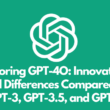
During my years as a Human Resources Manager, I’ve often started an interview with this simple question: “Tell me about yourself.”
It is also the most common question you could expect at any interview as a jobseeker. Now this question sounds very simple.
Perhaps you might have some ideas on how to answer this one if you’ve been to several interviews.
But did you know that there’re 10 easy ways to answer this question? Yes, as many as 10 easy and excellent ways.
That’s because “Tell me about yourself?” is usually the very first question that an interviewer would ask you before proceeding with other questions.
At the same time, the question: “Tell me about yourself.” isn’t all that easy as you might falsely believe.
That’s because an interviewer wants to get the first impression about you when you respond to this question. And invariably, the first impression often tends to be the last at an interview.
Why Interviewers Ask “Tell Me about Yourself”
Actually, there’re several reasons why an interviewer will ask you to tell them about yourself. I will enumerate these below, so that you can fully comprehend the exact intention behind this simple sounding question.
To Put You At Ease
Often, interviewers want to make you feel comfortable and put you at ease before coming down to brass-tacks. Hence, they do so by asking this simple question: “Tell me about yourself.”
Because nobody wants to interview a jobseeker who’s tense or nervous since it can spoil the organization’s chances of finding a superb employee.
The Interviewer is Confused
Sometimes, an interviewer is confused about where to begin the interview. Hence they ask: “Tell me about yourself.”
This gives them some time to think about other questions based upon your Curriculum Vitae (CV) or Resume, work experience, your expectations from the employer and other details.
As a Prelude to the Interview
In most cases, the question: “Tell me about yourself,” is asked by interviewers as a prelude or to begin the interview. They already have a clear idea about what questions they would be asking during the interview.
Hence, as a matter of courtesy and business etiquette, they will ask this question before going ahead with others.
To Gauge Your Body Language
Now here comes the catch. Some interviewers toss this question: “Tell me about yourself,” to gauge your body language.
That’s because every person can describe herself or himself very clearly and without lying about anything.
But if you’re fibbing or faking something during the response, your body language would betray that, which an interviewer will observe quickly.
Hence, it is very important to introduce yourself professionally in this tricky question during an interview . This will give employer a clear picture about how genuine you are as a candidate.
To Assess Your Career Goals
Another major reason for interviewers to ask this question is to assess your career goals.
They look for details such as what you expect from the job, try and find out how long you are likely to remain with the organization and how capable you’re about playing that specific role efficiently in a manner that benefits the employer.
10 Easy Ways to Answer: “Tell Me about Yourself”

Now let’s come down to the main point. And that’s how to answer tell me about yourself interview. As I mention earlier, you may have some rough ideas about how to answer this question.
However, I’m sure these 10 tips will prove useful for you during the next interview, regardless whether it’s a personal one or over Zoom and other online resources.
1. Speak about Your Educational Qualifications
If you’re a fresher applicant looking for that first job of your career, the best and easiest way to answer tell me about yourself question is by speaking about your educational qualifications.
Now you don’t really require high educational degrees to boast about while answering this question. Normally, even high school graduates can easily respond.
Speak about the subjects that were of your interest during school and high school days. Begin by introducing yourself and mention the name and location of the high school you’ve graduated from.
Proceed to speak about your educational qualifications and grades you could score.
Also mention all the extracurricular activities that you did during school and high school while speaking about awards and prizes that you may have won.
Generally, extracurricular activities help an interviewer to assess your overall personality. For example, if you were playing some team sport, it is a clear indicator that you’re capable of working in a team.
And if you were the leader of some group, you have leadership skills and so on.
2. Discuss Your Work Experience
This is for jobseekers that have some work experience. You can start answering the question: “Tell me about yourself,” with a brief introduction about yourself and the present job as well as previous employment history if any.
Be very specific to mention the roles you would play at your position with different employers and the work experience you could gain from them.
These would be of interest to the interviewer because they’re looking for people that have adequate experience in a specific role.
This kind of response can be given by candidates that have at least two to three years of experience at a specific role and are seeking higher positions with the new employer.
Or wish to change employers for better career prospects.
3. Highlight Your Work Skills

Highlighting your skills at work or a specific role is the best and easiest way for answering the question: “Tell me about yourself,” if you have superb skills but not adequate experience and educational qualifications for the job.
Here it’s worth remembering that work experience and work skills are two different things.
Experience means the number of years that you’ve been doing a specific job. Work skills means your aptitude or capability to work at a particular role with full efficiency.
Often, skills override experience and educational qualifications. An employer wants to know what skills you possess that could be useful for their business to grow, if they hire you.
Therefore, speak about your work skills. Start by speaking about your present job and the skills you’re learning there. And if you have an employment history, talk about skills that you’ve learned with previous employers.
Along with work skills many employers are also prefer important soft skills in their employees for better efficiency at work.
Generally, skills tend to impress an interviewer. That’s because they want people who can deliver results for the business.
Therefore, they don’t focus on education and work experience. Instead, they look for skills that match the needs of the organization.
4. Respond to Meet Employer’s Needs
You would definitely have applied for that job from a job board or LinkedIn or responded to a newspaper ad for a particular vacancy.
Usually, all top job boards and LinkedIn have details about the role that a person is expected to play at the organization at a specific post.
Therefore, you can customize your response according to the employer’s needs that you’ll find on the job advertisement.
To do so, go through the advertisement thoroughly. Identify areas where you can play an efficient role and your own grey areas or fields where you do not have the necessary experience and skills.
This would help you to customize your response to the question: “Tell me about yourself.”
Once again I’ll repeat, start by introducing yourself. Talk in details about your skills and work experience in handling the role that’s required by the employer.
However, mention these indirectly, without reference to the ad or the organization where you’re appearing for the interview.
The idea here is to catch the attention of the interviewer and convey the impression that you’re ideally suited for that role and post.
5. Emphasize Your Financial Goals
Unfortunately, a large number of jobseekers believe it’s impolite or incorrect to speak about their financial goals while answering the question: “Tell me about yourself.” That’s a myth.
You can also speak about your financial goals when answering that question. And trust me, you won’t be creating a bad impression or put off the interviewer.
Here’re two main things to remember if you’re going to emphasize your financial goals when answering this question.
Firstly, you’re at the interview because the employer found something of their interest on your CV or Resume- which could be work experience, work skills or educational qualifications.
Secondly, you’re there to seek a job for your career and not for doing charitable work. Therefore, it is perfectly fine to speak about your financial goals.
To do so, begin by introducing yourself. Talk about your education, skills and experience in depth.
And emphasize that you’re looking at fulfilling your financial goals, without direct mention of any employer or the one where you’re seeking the job.
This enables the interviewer to know that you’re serious about moving ahead in your career through promotions and will perform well to get more money in terms of salary raises and perks.
Preparing to Answer: “Tell Me about Yourself”

Now that I’ve discussed five topmost ways to answer the question: “Tell me about yourself,” I will discuss how you should prepare.
Never commit the blunder of speaking from your CV or Resume while responding to this question. And use business etiquette to sound very professional, even if you’re a fresher applicant.
6. Respond, Don’t Answer
There’s a favorite quote by eminent American motivational speaker and author, Dr. Stephen R. Covey that I always remind my readers about. Dr. Covey aptly says: “Most people do not listen with the intention to understand. They listen with the intention to reply.”
You might wonder about the difference between a reply and response. After all they’re the same aren’t they? Well, there’s a great difference between the two.
A reply is usually prompt and given without much thought to the question. That means, the person who replies isn’t really interested in the question and replies just to satisfy the asker.
On the other hand, response is given after some thought. The responder fully comprehends the question, thinks over it for a few seconds and customizes the response to suit the asker’s needs.
Therefore, always respond and never rush to reply to the question while talking about yourself. That would help create a better first impression with the interviewer.
A short pause of a few seconds between the question and the response is perfectly normal. Hence, you can safely take a few seconds to respond.
7. Mind Your Body Language
The question: “Tell me about yourself,” is often asked to assess your body language, as I mention earlier in this article.
Therefore, mind your body language while responding. Your body language speaks much louder than you and betrays your emotions to the interviewer.
The best way to mind your body language is by telling the truth and customizing your response will full honesty.
That will reflect on your body language and the interviewer would assess that you’re truthful and not fibbing about anything.
At the same time, make sure you’re not lying about anything such as your interests at high school, extracurricular activities, work skills and work experience or financial goals.
A lot of jobseekers fake it to make it. That’s wrong in the first place. You can fake your body language to show that you’re speaking the truth.
However, there’s a good chance that Employee Background Screening (EBS) will expose such lies, if you’ve lied on your CV or Resume.
8. Never Smile at the Question
A lot of websites that I see emphasize on the point that a jobseeker must smile when asked the question about themselves as well as other questions.
This is sheer nonsense. Smiling without reason makes you appear sheepish and sends wrong signals to the interviewer.
They might get an impression that you’re mocking them for the question. Remember, the interviewer is not there for your amusement. They’re there as part of their job. Therefore, a smile can cost you the dream job,
Also, smiling isn’t really necessary. Instead, make eye-to-eye contact with the interviewer when they ask the question and give a slight nod to acknowledge that you’ve comprehended it fully.
This is more professional and proper business etiquette.
9. Respond in a Positive Tone
Understandably, there would have been ups and downs in your life, education and career. For example, you may have wanted to do a certain course for higher education but couldn’t for some reason.
Or a previous or present employer could have treated you poorly. It’s fair enough to speak about these experiences. But do so in a positive manner.
Never denigrate or criticize your family or past employers when you’re speaking about yourself. Negative talk is the surest way to fail an interview. And especially while responding to the critical question.
When you speak negatively about anything when answering the question, you can surely expect the interviewer to interrupt you and ask another question such as why you couldn’t complete your studies, your family’s financial and social status, problems you had with an employer, lack of skills and so on.
Therefore, the best thing to do is always be positive in your response. That helps create a superb impression and can actually help you land that dream job.
10. Know Your Interviewers
And finally, the best way to respond to the question about yourself is to know your interviewers. This means, knowing their names and designations at the organization.
That’s because often you’ll be interviewed by a panel of interviewers instead of one person. And this panel could consist of the Human Resources manager, admin manager, departmental heads and sometimes, a director or even the business owner.
Knowing your interviewers helps you to customize the response according to the audience. That way, you can satisfy all the interviewers, even if some of them aren’t going to ask questions.
Usually, a panel will interview you when you’re applying for some top job at a large organization.
They involve a panel because the organization doesn’t want wrong hires, which could cost them anything between $4,000 to $150,000 in terms of recruitment and training expenses, resources, man-hours and sometimes, lawsuits.
Tell Me about Yourself in One/Two Minutes
Here comes the trickiest part of the question. Some interviewers will ask you to speak about yourself in just a minute or two. They do so to gauge your alertness as well as preparedness for the interview.
In such cases, the first rule is never get nervous or anxious or frightened. This pointed question with a time span to respond isn’t really meant to bounce you off.
You can choose from any of the five ways to respond to this question that I’ve discussed earlier in this article and use the right body language while following other tips I’ve given.
That way, you will sound confident and can easily respond to the question about yourself in a minute or two.
In Conclusion
Regardless whether you’re an experienced jobseeker or fresher, it’s always best to follow the above tips for succeeding at the interview. There’s no need for undue haste or panic and nervousness when this question appears.
Instead, be confident and use the right body language as well as customize your response to suit the audience.





